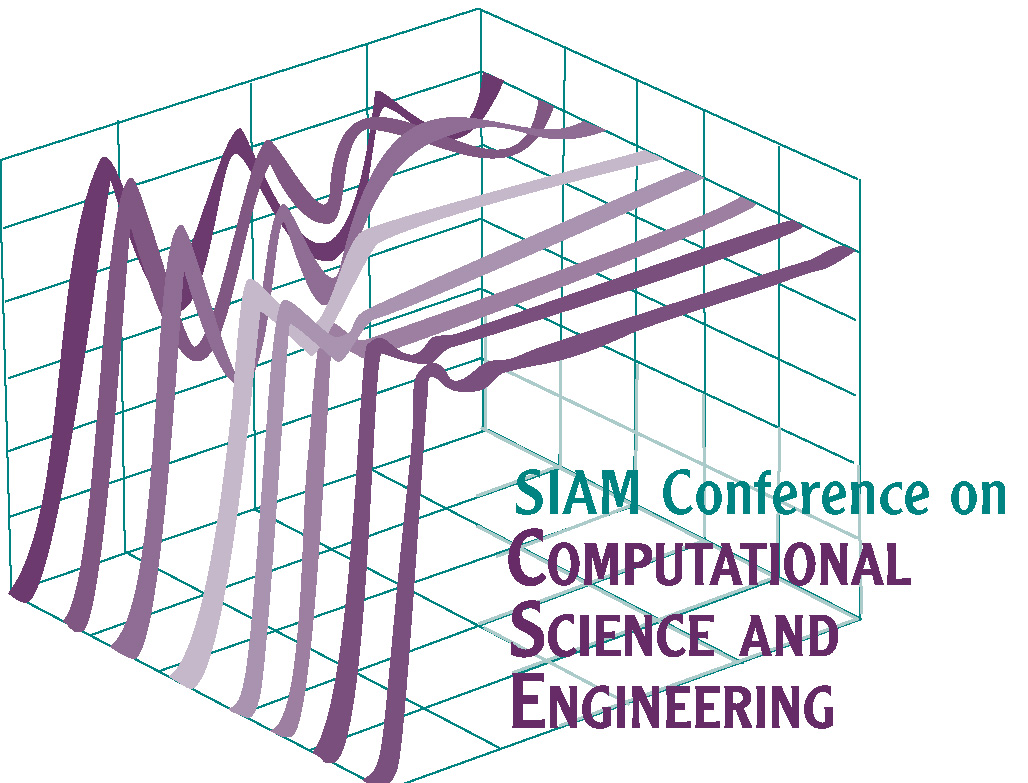
l. Short Course title:
Uncertainty Quantification
2. Date:
February 9, 2003
SIAM Associated Conference: CSE033. Short Course Organizers:
Roger Ghanem
Johns Hopkins University
201 Latrobe Hall
Baltimore, MD 21218.
[email protected]
Tel: 410 516 7647
Fax: 410 516-7473
Steve Wojtkiewicz
Sandia National Laboratories
POBox 5800, MS 0847
Albuquerque, NM 87185-0847.
[email protected]
Tel: 505 284-5482
fax: 505 844-9297
4. Rationale:
Significant research has been expanded over the past several decades to develop model-based predictions into sharp estimators of the actual behavior of natural and physical phenomena. The vision of computational experiments paralleling and predicting the outcomes of physical tests is already a driving force and an accepted model for the future of scientific computing. A key component in realizing this vision is the accurate and meaningful quantification of errors in model-based predictions.
The estimation of errors associated
with the discretization of the partial differential equations governing a
particular problem is a very active research field. The interpretation let
alone estimation of errors associated with natural variability and limited
data is, on the other hand, an emerging field. This Uncertainty Quantification
field addresses issues that are paramount to the validation of model-based
predictions and their use as substitutes or supplements to physical tests.
5. Lecturers:
Roger Ghanem
The Johns Hopkins University
Bio: Dr. Ghanem is a
Professor of Civil Engineering at the Johns Hopkins University. He has done
extensive research in the area of stochastic finite element analysis and
probabilistic modeling.
Steve Wojtkiewicz
Sandia National Laboratories
Bio: Dr. Wojtkiewicz
is with the Structural Dynamics and Smart Systems group at Sandia National
Laboratories. He is a lead member of the Uncertainty
Quantification group at Sandia and has been involved in algorithm and software
development for UQ applications. He is a member of the DAKOTA team.
6. Description:
This short course will present
an overview of the basic issues addressed by Uncertainty Quantification.
A mathematical formulation of these issues
will be presented that is consistent with approximation theory as used and
implemented in scientific computing. Outstanding theoretical and computational
issues will be delineated and a spectrum of approaches for addressing them
will be reviewed.
7. Course Objectives:
Attendees will be presented
with an overview of analytical and computational methods in the area of
Uncertainty Quantification. A panoramic view of the
field will be presented with appropriate connections to computational sciences.
An assessment will be provided of both the current-state-of the art and
of
research needs.
8. Level of
Material:
Introductory -30% Intermediate -70%
Advanced -na%
9. Who Should Attend:
Researchers in computational
sciences who want to learn the fundamental issues in Uncertainty Quantification
with the goal of either assessing its value to their research or learning
about issues associated with implementing it.
10. Recommended Background:
a. First course in numerical analysis.b. First course in probability and statistics.
11. Course Outline
- a. Motivation:
- objectives of predictive capabilities and inherent limitations of deterministic predictive models.
- b. Review of measure and probability: packaging of information and ignorance.
- c. Approximation over product and measure spaces.
- d. Stochastic error estimation.
- e. Control of the stochastic error.
- f. Unifying perspectives on Stochastic and multi-scale models.
- g. Numerical analysis issues.
- h. Implementation issues (legacy codes, new software, physical tests).
- i. Example applications.
9/24/02 dar